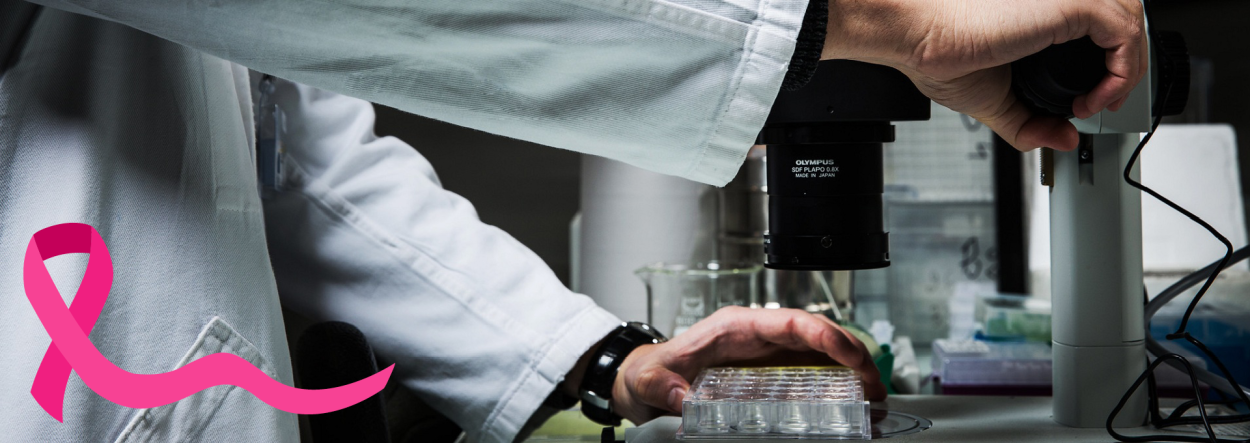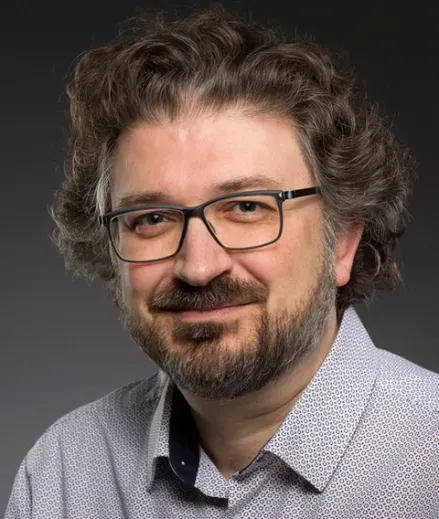Pink October: Researchers and students at École Polytechnique are joining forces to fight breast cancer

The Precision Biomedicine Chair at École Polytechnique, launched in April 2025, will study the properties of cells affected by mutations that cause tumour development, with a particular focus on breast cancer — the subject of the annual global Pink October campaign.
The campaign runs from 1 to 31 October and is designed to raise awareness of breast cancer screening among women and to raise funds for research.
The Precision Cancer Biomedicine Chair is led by Alexis Gautreau, Director of Research at the Laboratory of Structural Cell Biology (BIOC*) and Professor at École Polytechnique, and is supported by the Servier Science and Technology Association.
It provides financial support for research activities and contributes to the training of École Polytechnique students at the intersection of biology and other disciplines. It also organises an annual cancer cell biology workshop, bringing students into contact with professionals in the field.
To learn more about CRISPR/Cas9 technology, watch this video👇:
During their second year of study, engineering students from the École Polytechnique are invited to BIOC to take part in an immersion programme. There, they discover modern biomedical research tools such as CRISPR/Cas9 technology, which acts like 'molecular scissors'. This technology enables healthy cells to be genetically modified and transformed into cancer cells, allowing the abnormal behaviours induced to be observed, as well as the cells' sensitivity or resistance to therapies targeting their genetic alteration.
Through a combination of teaching, experimentation and laboratory immersion, the chair provides Polytechnique students with practical experience in biomedical research, preparing them for innovative careers in academic research, the pharmaceutical industry or biotechnology.
Internationally recognised cutting-edge research
The annual scientific workshop, held every October at the École Polytechnique, brings together renowned researchers from around the world to discuss cancer cell biology.
On 14 October 2025, students were able to exchange ideas with cancer specialists from several institutions, including the Marseille Cancer Research Centre, the Bordeaux Institute of Oncology, the Curie Institute, the Institute for Advanced Biosciences, the Gustave Roussy Centre, and the Servier Research & Development Institute. The event showcased the latest breakthroughs in tumour research and treatment.
By combining science, innovation and public health, initiatives such as this one, led by École Polytechnique, will improve the health of millions of people. According to the WHO (World Health Organization), an estimated 2.3 million women worldwide were diagnosed with breast cancer in 2022, and 670,000 of them died from the disease.
* BIOC is a joint research unit bringing together the CNRS and École Polytechnique.
Interview with Alexis Gautreau, Director of Research at the Laboratory of Structural Cell Biology (BIOC) and Professor at École Polytechnique

How can research conducted within the 'Precision Biomedicine for Cancer' chair ultimately improve the prevention or treatment of breast cancer?
Gaining a better understanding of the causes of cancer development could help to prevent its onset. However, oncogenic mutations often occur as a result of random mutations that cannot be avoided. In addition to these mutations, cancer generally also involves modifiable behaviours such as smoking or overeating.
The scope of treatments is immense. Researchers and oncologists are increasingly trying to understand how the most appropriate treatment is determined by the nature of the mutations acquired by tumour cells.
Why is it important to train young engineers and researchers in the fight against cancer, and how does this experience raise their awareness of public health issues?
Training polytechnic engineers in precision cancer medicine is important, because they offer a different perspective to that of pure biologists. They tend to practise a more quantitative form of biology and seek to provide practical solutions, such as new biomedical devices. Here at École Polytechnique, we have students with an entrepreneurial spirit who are committed to this path.
 Support l'X
Support l'X